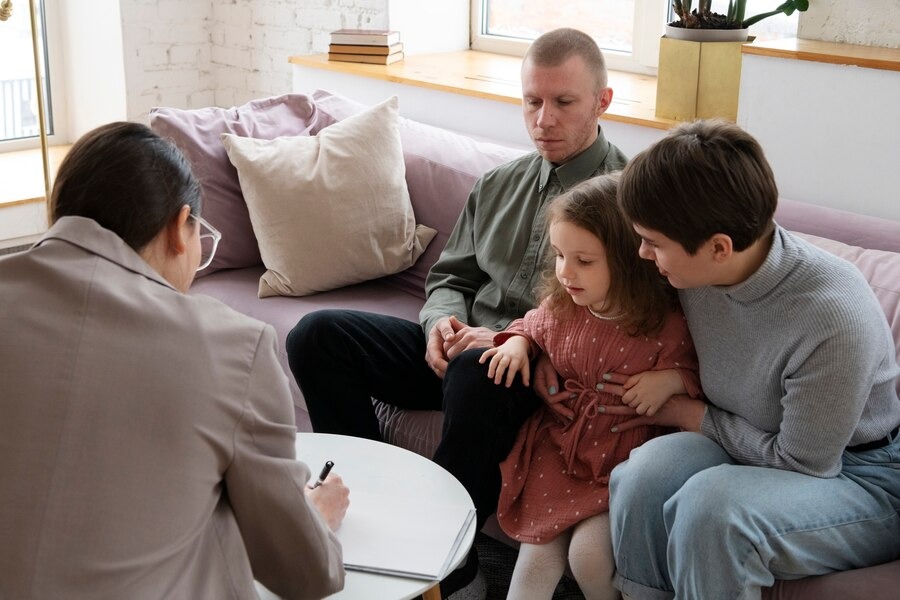Dementia can be a challenging condition for families and loved ones. When someone with dementia moves to a nursing home, it becomes even more important for children and family members to stay engaged in their care. The support offered by children and family services plays a crucial role in ensuring residents with dementia continue to live with dignity, receiving both emotional and physical care.
The following is a detailed post on how these services contribute to the well-being of dementia nursing home residents and their families.
What is the Importance of Family in Dementia Care?
Family involvement is essential for the well-being of people with dementia.
When a loved one is placed in a dementia nursing home, family members play an important role in ensuring their needs are met. Their visits provide residents with emotional stability and a sense of belonging. These emotional bonds can help ease the confusion and anxiety often experienced by dementia patients. Family services are designed to encourage these relationships. Programs such as family counselling, social activities, and regular updates help bridge the gap between the clinical environment of a nursing home and the emotional needs of residents.
Children and Family Services: A Lifeline for Dementia Care
Children and family services go beyond simple caregiving. They provide essential services like advocacy, emotional support, and coordination between the family and healthcare professionals. For dementia patients, who may struggle with memory loss and communication, these services are vital. They ensure that family members stay involved and informed about the care their loved ones are receiving. Many dementia nursing homes offer specialised services to involve children and younger family members in caregiving. For instance, structured activities allow families to interact in a way that benefits both the resident and the younger relatives. Such engagements foster a deeper connection and understanding of the resident’s condition, making visits more meaningful and less stressful for both parties.
How Children Contribute to Dementia Care?
Children, even though young, can play a big role in supporting their family members with dementia. By interacting with dementia patients, children can brighten their day. Activities like drawing, reading aloud, or simply sitting with them can improve the patient’s mood. Children and family services often organise these activities to ensure that young family members can contribute in a safe, meaningful way. Children bring a sense of normalcy to nursing homes. Their energy and presence can reduce the feelings of isolation many residents feel. Dementia nursing homes can encourage such involvement by organising family-friendly events and making the space welcoming for all ages.
Strengthening Family Ties Through Support Services
Support services offered by nursing homes provide a range of tools for families to maintain close connections with their loved ones. Regular family meetings, counselling sessions, and social events create opportunities for families to interact with staff and other families. This interaction fosters a sense of community, making it easier for families to share their concerns and support each other. For many families, placing a loved one in a dementia nursing home can be emotionally challenging. Children and family services help ease the transition by offering emotional support and guiding families through the care process. This support ensures that family members can continue to play an active role in their loved one’s life, even after admission to the nursing home.
Challenges Faced by Families and Solutions Offered by Family Services
Caring for someone with dementia is difficult, especially for families who may feel overwhelmed.
Many families face challenges such as guilt, emotional burnout, and uncertainty about their loved one’s future. Children and family services provide counselling, support groups, and other resources to address these concerns. They offer guidance on decision-making and ensure that family members have access to the right information. Regular updates from the nursing home staff, facilitated by family services, also help families stay informed about their loved one’s care. These updates ensure that any changes in the resident’s condition are communicated quickly, allowing for better coordination between the family and the care team.
Conclusion
Supporting a loved one with dementia in a nursing home requires more than just medical attention. Children and family services play a crucial role in maintaining the emotional well-being of both the resident and their families. From fostering family connections to involving children in care, these services ensure that residents receive holistic support. Families can continue to contribute to their loved one’s quality of life by staying connected through these valuable services, making the care journey a little easier for everyone involved.
